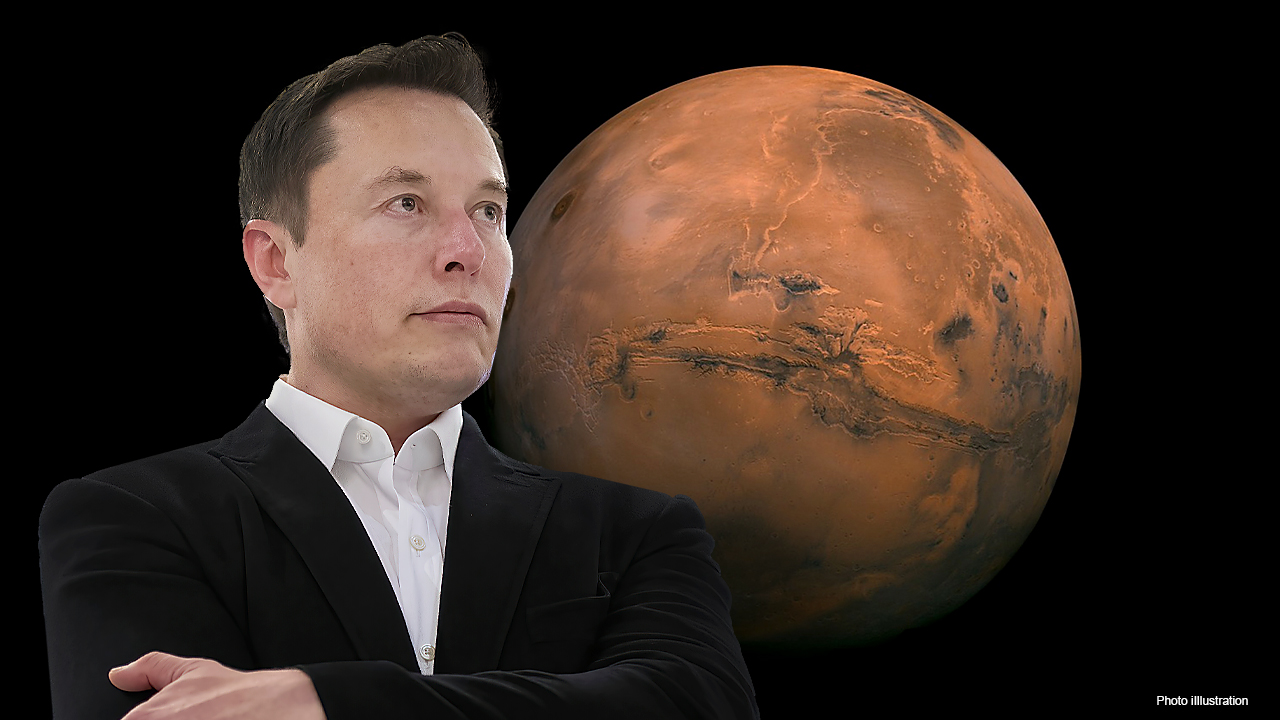
when Horror Yearbook – Elon Musk is once again igniting the imagination of the world with bold predictions about Mars and extraterrestrial discoveries. In a recent appearance on a podcast hosted by Senator Ted Cruz, Musk suggested that although living aliens may not be found, ancient ruins from a long-dead alien civilization could still be waiting. He believes this discovery could be just years away, once humans finally land on the red planet. Musk also proposed the idea that microbial life may still exist deep below the Martian surface. This visionary entrepreneur has always framed Mars as humanity’s next frontier and continues to focus his efforts on making life multiplanetary. His comments sparked global debate, especially given his timeline that predicts a human arrival on Mars by 2029. With Musk’s ambitious plans, the search for alien life on Mars no longer feels like science fiction but a real possibility just around the corner.
Elon Musk continues to lead the charge toward Mars with urgency and determination. During his conversation with Senator Cruz, he projected that building a self-sustaining city on Mars could take 20 years. He stated that such a city would require a million people and about a million tons of cargo. Elon Musk believes this kind of migration is crucial for humanity’s long-term survival. SpaceX, under his leadership, has designed the Starship rocket specifically for Mars travel. The company plans to launch an uncrewed mission by 2026, followed by human missions as early as 2029. Musk’s vision includes developing an ecosystem where humans can thrive independently of Earth. He stressed the importance of preparing now rather than waiting for a potential crisis. With his plans advancing quickly, Elon Musk is turning Mars from a distant dream into a destination with tangible timelines and goals. The drive to colonize Mars may define this generation’s legacy.
“Read about: James Bond Reboot Update: Amazon Confirms Next 007 and It’s Not Who You Think!”
Starship represents the crown jewel of Elon Musk’s interplanetary ambitions. The fully reusable spacecraft developed by SpaceX is designed to carry both cargo and humans to Mars. With each test, the system is becoming more refined, bringing the dream closer to reality. Musk has used Starship to symbolize a modern era of space exploration. He posted on social media that Mars is the New World, drawing a parallel to past human voyages of discovery. Starship is not just a technical marvel but a political statement. It showcases what can be achieved when vision and innovation meet. The first uncrewed mission to Mars may launch by 2026, and its success would open the door for human landings. Every part of Starship, from its fuel capacity to payload design, supports the long-term goal of building sustainable Martian cities. The world watches closely as Starship progresses through each milestone, with Mars no longer feeling out of reach.
“Read more: BREAKING NEWS: Deadly Shooting at Dallas ICE Facility, Gunman Killed, Casualties Mount!”
Musk’s comments about ancient alien ruins on Mars stirred discussion among scientists and geologists. Experts like Roger Wiens of Purdue University have long believed that Mars held favorable conditions for life. His research confirmed that Mars once had rivers, lakes, and a climate capable of supporting microbial life. New discoveries, such as kaolinite rocks, continue to support theories of ancient habitability. While some scientists remain skeptical about finding ruins of alien civilizations, they agree that exploring Mars could unlock secrets from billions of years ago. The possibility of ancient structures, even if not alien in origin, presents an exciting opportunity to study planetary evolution. Researchers emphasize the importance of sending instruments and eventually humans to conduct thorough exploration. Musk’s ideas, while bold, are not entirely dismissed by the scientific world. Instead, they fuel a broader curiosity about Mars, motivating deeper investigation into what the red planet might be hiding beneath its dusty surface.
Elon Musk’s space ambitions extend beyond science and into global politics. His close relationship with former President Donald Trump and his role in the Department of Government Efficiency have raised eyebrows. Some lawmakers fear Musk’s influence over NASA might shift priorities unfairly toward SpaceX, potentially sidelining competitors like Boeing. Despite concerns, Musk continues to gain international attention. Russian officials recently expressed interest in collaborating with him on Mars missions. They cited the potential synergy between SpaceX and Russian space agencies like Roscosmos. Countries around the world are watching SpaceX’s progress, aware that Mars colonization will redefine geopolitical dynamics. Musk insists his mission is humanitarian and visionary, not political. However, the scale and speed of his plans inevitably intersect with government interests. As nations compete and cooperate in space, Musk stands as a powerful and disruptive force. His vision for Mars might reshape not only science and industry but also global alliances and space diplomacy.
This article is sourced from www.newsweek.com and for more details you can read at horroryearbook
Writer: Sarah Azhari
Editor: Anisa